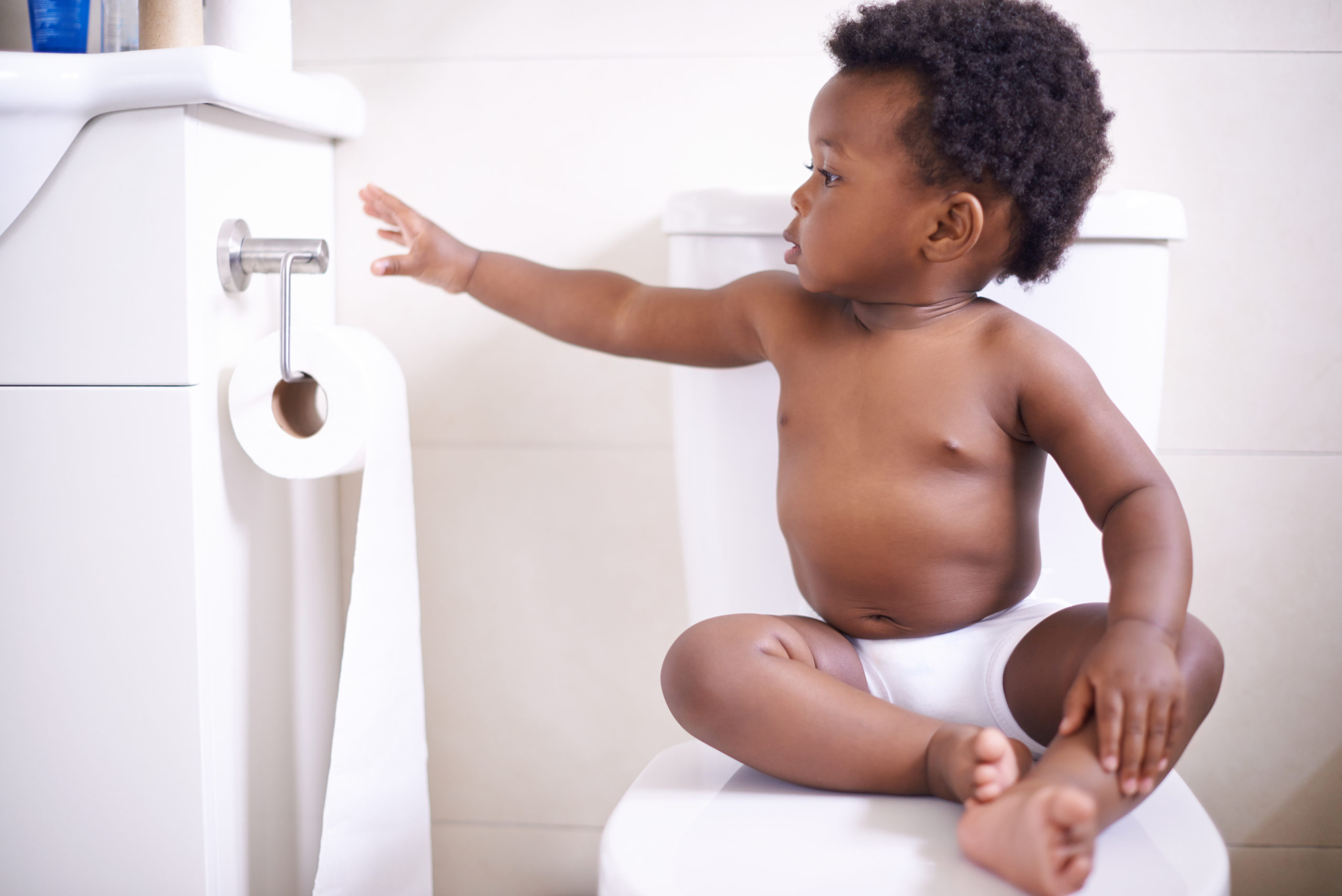Potty Training
 Before your child is even ready to use the toilet, you can “start” potty training. Let your child watch you use the toilet. Although the bathroom may be your sanctuary, the one spot you get 2 minutes of peace, letting your child watch you go and verbally explaining what’s happening is incredibly helpful. Be explicit and go through every step of the process.
Before your child is even ready to use the toilet, you can “start” potty training. Let your child watch you use the toilet. Although the bathroom may be your sanctuary, the one spot you get 2 minutes of peace, letting your child watch you go and verbally explaining what’s happening is incredibly helpful. Be explicit and go through every step of the process.
Books are great resources, fine ones that explain potty training. We like those that are gender specific. Use your family’s own designated words for body parts, urine, and stool when reading the books and talking about toileting.
Get a potty chair that works for your child and family. If you want your little boy to sit, it’s helpful to get one with an enhanced splash guard in the front.
Use stuffed animals or dolls to make toilet time fun, and, again, talk about what’s happening. “Dolly has to go potty. Since you’re Dolly’s mommy, please help her go.” Your child can take turns with toys on the potty. Remember, the first step is just tolerating the toilet or potty chair. Sit and read books, play with toys, even eat snacks.
When is your child ready?
- Is your child aware of the difference between being wet and being dry? Does he tell you when he needs his diaper changed? Does he express discomfort when his diaper is wet or dirty?
- Can your child stay dry for at least 2 hours at a time? Start a log of when he’s dry and when he’s wet.
- Can your child sense when he needs to urinate or have a bowel movement? Does he go in the corner or quiet place when it’s time to have a bowel movement? Does he cross his legs when it’s time to urinate?
- Can he reach the potty chair or toilet in time to use it? He may still need your help with this step but should be able to hold it for a few seconds while you make the mad dash to the nearest bathroom.
- Can he undress and dress himself, particularly his bottom half?
- Is he motivated to be more independent and to take the next step?
Remember not all children are ready at the same time!
Ideally, you should answer yes to all of these questions before beginning potty training. If you push potty training before your child is ready, you will ultimately engage in a power struggle and you will lose. Excreting waste is one of the few things your child has control over, you do not want your child with-holding stool just to feel empowered.
If you start potty training and find yourself fighting with your child, holding him on the potty, forcing her to sit for 2 minutes, stop! Take a break for a few days, a few weeks, or a few months until your child is ready to start again. Your child will eventually learn to use the potty but you cannot force it to happen.
How exactly does this work:
Make it fun! Celebrate EVERY success. He sits on the potty for a few minutes? Have a dance party! She gets half of the urine or bowel movement into the toilet? High fives! He simply attempts to make it to the potty but utterly fails? Hugs! It can be tempting to scold your toddler for urinating all over the floor but try not to. Celebrate the fact that he went someplace other than his diaper and help him understand that next time, he should try to do it in the potty. Potty training must be enjoyable for you and your child for it to be successful.
Practice at key times: Sit on the potty before and after sleeping, and before and after meals. These are the most likely times that your child needs to use the toilet.
Go every 2-3 hours at first. In addition to the times mentioned above, try to get your child sitting on the toilet every few hours. A potty watch is particularly helpful with this step. She may insist that she does not have to go but encourage her to sit and try, even for a minute. You can model this behavior by saying, “Mommy doesn’t really have to go potty but since we’re going on a trip, I will try to go now.”
Do not punish. It may be tempting to punish accidents but research has shown that punishing during potty training is not effective. Your child needs to want to use the toilet and needs only encouragement from you to make it happen. Focus on every positive experience and celebrate every little triumph.
What about kids with special populations?
The above information still applies for kids with special needs with some adaptations. An occupational therapist can assist you in knowing what adaptations your child will need for successful potty training. There are also several books specific to children with special needs that can assist you as well.
What if you are having no success?
Sometimes, your child needs professional help to be successful with toileting. Bedwetting until age 6 is considered within the normal range. If your child is still having issues with this past age 6, our skilled physical therapist, Amanda Fehrer, DPT can help. She can screen your child to determine if it’s a muscle or coordination issue. Amanda can also assist with relieving constipation, another common obstacle to successful potty training.
